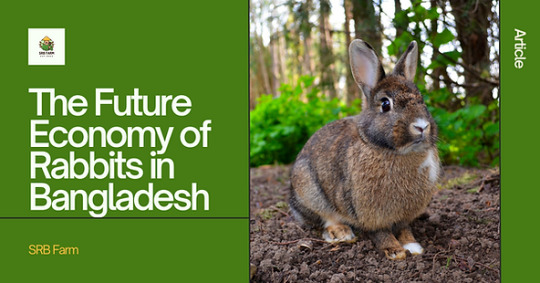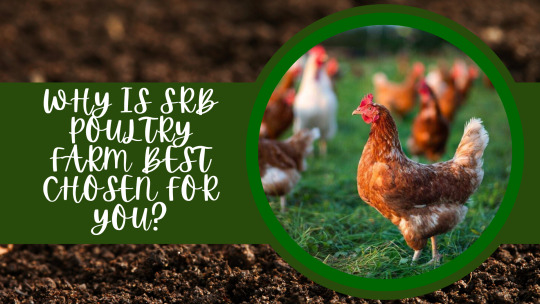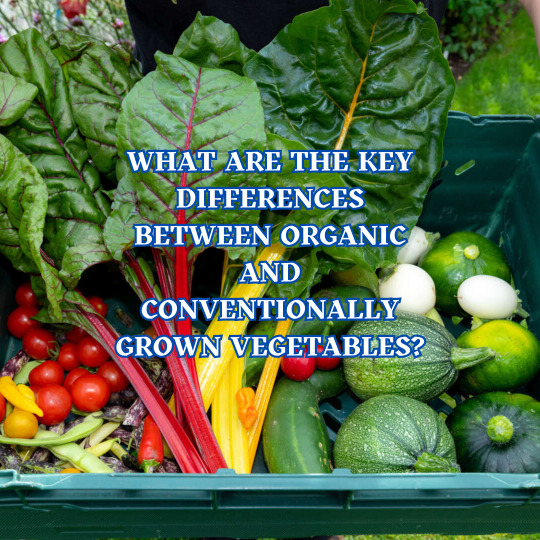SRB Farm is a state-of-the-art, technologically advanced organic farm. Where vegetables, fish, eggs, and livestock are produced in a standard manner.
Don't wanna be here? Send us removal request.
Text
Rabbit Farm Economy in Bangladesh by SRB Farm
Rabbit is becoming a potentially profitable business in the Bangladeshi market. Where the young entrepreneurial farmer will participate. It's going to be a great thing. If you are a rabbit lover, SRB Farms is giving you advance notice. Think of your hobby rabbit farm as a business. The demand for rabbits in the Bangladesh market is increasing with the international market. It is estimated that the rabbit market will grow by 2.3% by 2025 and the global rabbit meat production will increase to 1.8 million tons. Rabbit Market Price | Rabbit Farming in Bangladesh | Rabbit Farm in Bangladesh | Best Rabbit Farm in Bangladesh | Rabbit Economy | Rabbit Economy in Bangladesh | Rabbits Farming Bangladesh | Rabbits Care in Bangladesh | Rabbits Production in Bangladesh |
#rabbit #rabbits #rabbitfarming #rabbitfarm #rabbitrabbit #rabbitsound #rabbitlifestyle #rabbitjump #rabbitgamingg #rabbitgram #rabbitcaretips #rabbitcare #rabbitcookies #rabbitmeat #animals #animal #animallover #animalsvideo #Rabbit_Market_Size #rabbit_farm #rabbit_video
youtube
0 notes
Text
The Future Economy of Rabbits in Bangladesh
This article discusses the future economics of Bangladesh rabbits. Rabbit rearing will have a great impact on the economy of Bangladesh and the economy of Bangladesh will benefit a lot. The market volume for hare meat will reach 1.8 million tonnes by the end of 2025 as the current trend pattern shows an expansion of 2.3% CAGR. (said EuroMeat News.com )
Rabbits are innocent animals. They are herbivores. Likes to eat a variety of grasses. Rabbits produce more babies than any other animal. Rabbits can be kept in cages. Diseases are low, there is demand in the market. Because of that, people's enthusiasm for raising rabbits is increasing. Many people are also earning besides fulfilling their hobby.
Fancy breeds of rabbits are more popular. Lionhead, Holland Lop, Mini Lop, Lion Lop and Hott Dwarf breeds of rabbits are most in demand in Bangladesh. Among them Giant Angora 6-10 thousand a pair, Satin Angora 6-10 thousand a pair, Netherlands Dwarf 12-14 thousand a pair, Lionhead 24-30 thousand a pair, Mini Lop 24-30 thousand a pair, Holland Lop 24- 30 thousand taka pair, Lion Lop 24-30 thousand taka pair.
The main food of rabbits is grass. Grass is given in the morning, noon, afternoon, and night. They like Napier and Pakchan grass. The body weight of the rabbit is in kg. 50 to 60 grams of food should be given for every kilogram of body weight. It is also cow feed.
Vegetables two days a week and fruits two days a week. Among the vegetables, carrots, cucumbers, turnips, turnips, kale, sweet pumpkin, etc. can be given. Eats apples, watermelons, bananas etc. A minimum of 5 square feet of space is required for a rabbit. An average rabbit costs five to seven hundred rupees per month.
Rabbits are usually ready to breed at 5-6 months of age. A baby rabbit takes at least 7 months. 5 to 7 months is the best time for breeding. Their young are born 28-35 days after mating. Usually, 45-55 days babies eat their mother's milk. However, from the age of 18-20 days, it starts learning to eat other foods with its mother. Babies should not be separated from their mothers until they are 2 months old.

If you want to read full Artical then Click Here
#Rabbit Farming in Bangladesh#Rabbit Farm in Bangladesh#Rabbit Farming#Bangladeshi Rabbit Economy#Rabbit Economy#Rabbit Economy in Bangladesh
0 notes
Text
SRB Poultry Farm prides itself on delivering the finest quality poultry products to our customers. Here's why our poultry stands out from the rest:
1. **Top-Quality Standards**: We adhere to stringent quality standards throughout our poultry farming process. From the selection of breeds to the handling of eggs and the raising of chicks, every step is meticulously managed to ensure the highest quality outcome.
2. **Healthy and Happy Birds**: Our poultry are raised in a stress-free environment with plenty of space to roam and access to clean water and nutritious feed. This results in healthier and happier birds, which in turn translates to better-tasting and more nutritious meat and eggs.
3. **Expertise and Experience**: With years of experience in poultry farming, our team consists of experts who understand the nuances of raising poultry. They employ best practices and innovative techniques to optimize the health and productivity of our birds.
4. **Ethical Farming Practices**: We are committed to ethical and sustainable farming practices. Our poultry farm operates with the utmost respect for animal welfare, environmental sustainability, and community well-being. When you choose our poultry products, you can trust that you're supporting a responsible and conscientious operation.
5. **Freshness Guaranteed**: We prioritize freshness in all our products. Our poultry is processed and delivered promptly to ensure that you receive the freshest meat and eggs possible. From farm to table, we guarantee the highest level of freshness and flavor.
6. **Variety and Selection**: Whether you're looking for whole chickens, chicken parts, or eggs, we offer a wide variety of poultry products to suit your needs. Our diverse selection ensures that you can find exactly what you're looking for, whether you're cooking a family meal or preparing for a special occasion.
7. **Customer Satisfaction**: Above all, we prioritize customer satisfaction. We value your trust in choosing our poultry products, and we're committed to delivering an exceptional experience every time. From our friendly customer service to our reliable delivery, we go above and beyond to ensure that you're completely satisfied with your purchase.
In conclusion, when you choose our poultry, you're choosing the best in quality, taste, and ethical standards. Experience the difference for yourself and make our poultry a staple in your kitchen.

#farming#agriculture farming#bangladeshi organic farming#organic#organic farming#organic farm in bangladesh#farm#organic vegetables#crop#meat and poultry#poultry farming#poultry feed#chicken#backyard poultry#poultry man#Poultry Farm
0 notes
Text
Why SRB Farm is the best choice for your health benefits?
Welcome to SRB Farm, where the essence of agriculture meets the spirit of community. At SRB Farm, we take pride in cultivating not just crops but fostering a sustainable and harmonious relationship between nature and the people who depend on it.
Our Roots:
Founded with a passion for responsible farming and a commitment to providing fresh, wholesome produce, SRB Farm is nestled in the heart of The City of Green in the northern region of Bangladesh is located in Sonatala Upazila of Bogra District. Our journey began with a simple belief – that a farm is not just a place of cultivation but a living, breathing entity that sustains life.
Google Map 👈

Our Commitment to Sustainability:
At SRB Farm, sustainability is at the core of everything we do. We employ environmentally friendly farming practices, prioritize soil health, and embrace innovative techniques to minimize our ecological footprint. From seed to harvest, we strive to create a balance that ensures the prosperity of the land for generations to come.
Quality Produce, Naturally Grown:
We specialize in growing a diverse range of crops, from vibrant vegetables to luscious fruits, all nurtured under the open skies and kissed by the sun. Our produce is free from harmful chemicals and pesticides, embodying the true flavors of nature. When you choose SRB Farm, you're not just getting fresh food; you're receiving a taste of the care and dedication that goes into every harvest.
Community Connection:
SRB Farm is more than just a source of food; it's a community hub. We believe in fostering connections and building relationships. Whether you're a neighbor, a fellow farmer, or someone passionate about sustainable living, our doors are always open. Join us for seasonal events, workshops, and a chance to be part of the SRB Farm family.
Our Vision for the Future:
As stewards of the land, we envision a future where agriculture coexists harmoniously with nature, and where communities thrive on the bounty of the earth. SRB Farm is not just a farm; it's a vision for a better, more sustainable world.
Come, and experience the difference at SRB Farm – where the soil is rich, the crops are bountiful, and the sense of community flourishes. Together, let's cultivate a future we can all be proud of.
#farming#organic farm in bangladesh#bangladeshi organic farming#organic#agriculture farming#organic vegetables#organic farming#crop#farm
0 notes
Text
Can you explain the certification process for organic vegetables and its significance?
The certification process for organic vegetables involves a series of steps and standards to ensure that the produce meets specific organic farming criteria. The process is designed to guarantee that the vegetables are grown and handled by organic principles, promoting sustainability, environmental stewardship, and consumer health. Here's an overview of the certification process and its significance:
Certification Process:
1. Application:
- Farmers interested in organic certification apply to a certified organic certifying agency.
2. Documentation:
- Farmers provide detailed documentation about their farming practices, including crop rotations, seed sources, soil management, pest control methods, and more.
3. Inspection:
- Trained inspectors visit the farm to assess compliance with organic standards. They examine fields, review records, and interview farmers to ensure adherence to organic principles.
4. Review by Certification Body:
- The certifying agency reviews the inspection report and documentation to determine if the farm meets the organic standards.
5. Decision:
- The certification body decides whether to grant organic certification based on the inspection findings and adherence to organic standards.
6. Certification:
- If approved, the farm receives an organic certification, and they are allowed to label and sell their produce as organic.
7. Annual Renewal:
- Organic certification is typically valid for one year. Farmers must undergo annual inspections and submit updated documentation for renewal.
Significance:
1. Consumer Trust:
- Organic certification assures consumers that the vegetables have been produced without synthetic pesticides, herbicides, and genetically modified organisms (GMOs), promoting trust in the quality of the produce.
2. Environmental Protection:
- Organic farming practices prioritize soil health, biodiversity, and sustainable agriculture, contributing to natural resource conservation and reducing environmental impact.
3. Health Benefits:
- Certified organic vegetables are grown without synthetic chemicals, making them a healthier option for consumers. Organic farming often emphasizes nutrient-rich soil, which can result in more nutritious produce.
4. Market Access:
- Certification opens up markets for organic farmers. Many retailers and consumers specifically seek out and trust certified organic products.
5. Supports Sustainable Agriculture:
- Organic farming methods focus on maintaining soil fertility, crop diversity, and ecological balance, aligning with principles of sustainability and long-term agricultural viability.
6. Global Standardization:
- Organic certification follows established international standards, providing a consistent framework for organic farming practices and facilitating global trade.
In summary, the organic certification process ensures that vegetables labeled as "organic" meet specific standards, providing benefits to consumers, the environment, and farmers who adopt sustainable and environmentally friendly agricultural practices.

#organic#farm#farming#organic farm in bangladesh#crop#organic farming#Organic Farming in Bangladesh#Bangladeshi Organic Farming#organic vegetables#organic gardening#organic fertilizer equipment#agriculture farming#agriculture
0 notes
Text
How is soil management different in organic vegetable farming compared to conventional methods?
Organic vegetable farming and conventional (non-organic) vegetable farming differ significantly in their approaches to soil management. The key distinctions are related to the use of synthetic inputs, soil fertility practices, and overall ecological considerations. Here are some of the main differences:

1. Use of Synthetic Fertilizers and Pesticides:
- Conventional Farming: Relies heavily on synthetic fertilizers and pesticides to enhance soil fertility and control pests and diseases.
- Organic Farming: Avoids synthetic inputs and emphasizes the use of natural alternatives, such as compost, cover crops, and organic fertilizers. Pest and disease control are often managed through integrated pest management (IPM) practices, crop rotation, and companion planting.
2. Soil Fertility Management:
- Conventional Farming: Often relies on chemical fertilizers that provide specific nutrients to crops. These fertilizers may lead to nutrient imbalances and may not enhance soil organic matter.
- Organic Farming: Focuses on building soil fertility through the use of organic matter. Practices include incorporating compost, green manures (cover crops), and crop rotation, promoting microbial activity and enhancing soil structure.
3. Crop Rotation and Diversity:
- Conventional Farming: May use limited crop rotations, leading to potential soil degradation and increased susceptibility to pests and diseases.
- Organic Farming: Emphasizes diverse crop rotations, which can help break pest and disease cycles, improve soil structure, and enhance nutrient cycling.
4. Soil Conservation Practices:
- Conventional Farming: May involve extensive tillage, which can lead to soil erosion, compaction, and loss of organic matter.
- Organic Farming: Encourages reduced tillage or no-till practices to minimize soil disturbance, reduce erosion, and preserve soil structure.
5. Cover Cropping:
- Conventional Farming: Cover cropping may be less common, and synthetic inputs may be used to compensate for the lack of cover crops.
- Organic Farming: Frequently employs cover crops to protect and improve the soil during periods when the main crop is not growing. Cover crops contribute organic matter, prevent erosion, and enhance nutrient availability.
6. Soil Microbial Health:
- Conventional Farming: Synthetic inputs may negatively impact soil microbial communities.
- Organic Farming: Prioritizes the health of soil microorganisms through practices like the use of organic amendments, cover cropping, and reduced reliance on synthetic chemicals.
In summary, organic vegetable farming emphasizes sustainable and environmentally friendly practices, promoting soil health through organic matter incorporation, crop diversity, and reduced reliance on synthetic inputs. Conventional methods, on the other hand, often focus on high-input systems using synthetic fertilizers and pesticides.
#organic farming#Conventional Farming#Farming#agriculture farming#Chemical Free Farming#Organic Vegetables#Organic Vegetables Production#Bangladeshi Organic Farm#Organic Farm in Bangladesh#Fish Farm in Bangladesh#Dairy Farm in Bangladesh#Cattle Farm in Bangladesh#Best Agriculture in world
0 notes
Text
What are the key differences between organic and conventionally grown vegetables?
Organic and conventionally grown vegetables differ in various aspects, including farming practices, use of inputs, and environmental impact. Here are some key differences:
1. Farming Practices:
- Organic: Organic farming relies on natural processes and avoids the use of synthetic pesticides, herbicides, and fertilizers. It emphasizes crop rotation, composting, and natural pest control methods.
- Conventional: Conventional farming uses synthetic chemicals such as pesticides, herbicides, and synthetic fertilizers to maximize crop yields. It may also involve genetically modified organisms (GMOs) to enhance certain traits.
2. Pesticides and Herbicides:
- Organic: Organic farming limits the use of synthetic pesticides and herbicides. Instead, it employs natural alternatives, such as neem oil, insecticidal soap, and beneficial insects.
- Conventional: Conventional farming often relies heavily on synthetic pesticides and herbicides to control pests and weeds, which can leave residues on the produce.
3. Fertilizers:
- Organic: Organic farming uses natural fertilizers like compost, manure, and cover crops to enhance soil fertility. These inputs release nutrients slowly, promoting long-term soil health.
- Conventional: Conventional farming uses synthetic fertilizers that provide a quick nutrient boost to the plants but may contribute to nutrient runoff and soil degradation over time.
4. Genetically Modified Organisms (GMOs):
- Organic: Organic farming prohibits the use of genetically modified organisms (GMOs), focusing on natural and traditional breeding methods.
- Conventional: Conventional farming may involve the use of GMOs to enhance crop characteristics, such as resistance to pests or tolerance to specific herbicides.
5. Soil Health:
- Organic: Organic farming emphasizes soil health through practices like crop rotation, cover cropping, and the use of organic matter, fostering a diverse and balanced soil ecosystem.
- Conventional: Conventional farming may lead to soil degradation over time due to the reliance on synthetic inputs and reduced crop diversity.
6. Environmental Impact:
- Organic: Organic farming aims to minimize environmental impact by avoiding synthetic chemicals, promoting biodiversity, and using sustainable farming practices.
- Conventional: Conventional farming practices may have a greater environmental impact due to the use of synthetic chemicals, potential soil erosion, and the depletion of natural resources.
It's important to note that the choice between organic and conventional produce often depends on personal preferences, values, and considerations such as environmental impact and health concerns.

#organic#crop#farm#farming#Bangladeshi Organic Farming#Organic Farm In Bangladesh#agriculture#farms#food security#former#soil#stardew farmer#farm life#farmland
2 notes
·
View notes